Ady Barkan Is Fighting for His Life and Yours
The activist, who was diagnosed with ALS at 32, discusses his new memoir, “Eyes to the Wind,” and his quest for universal health care.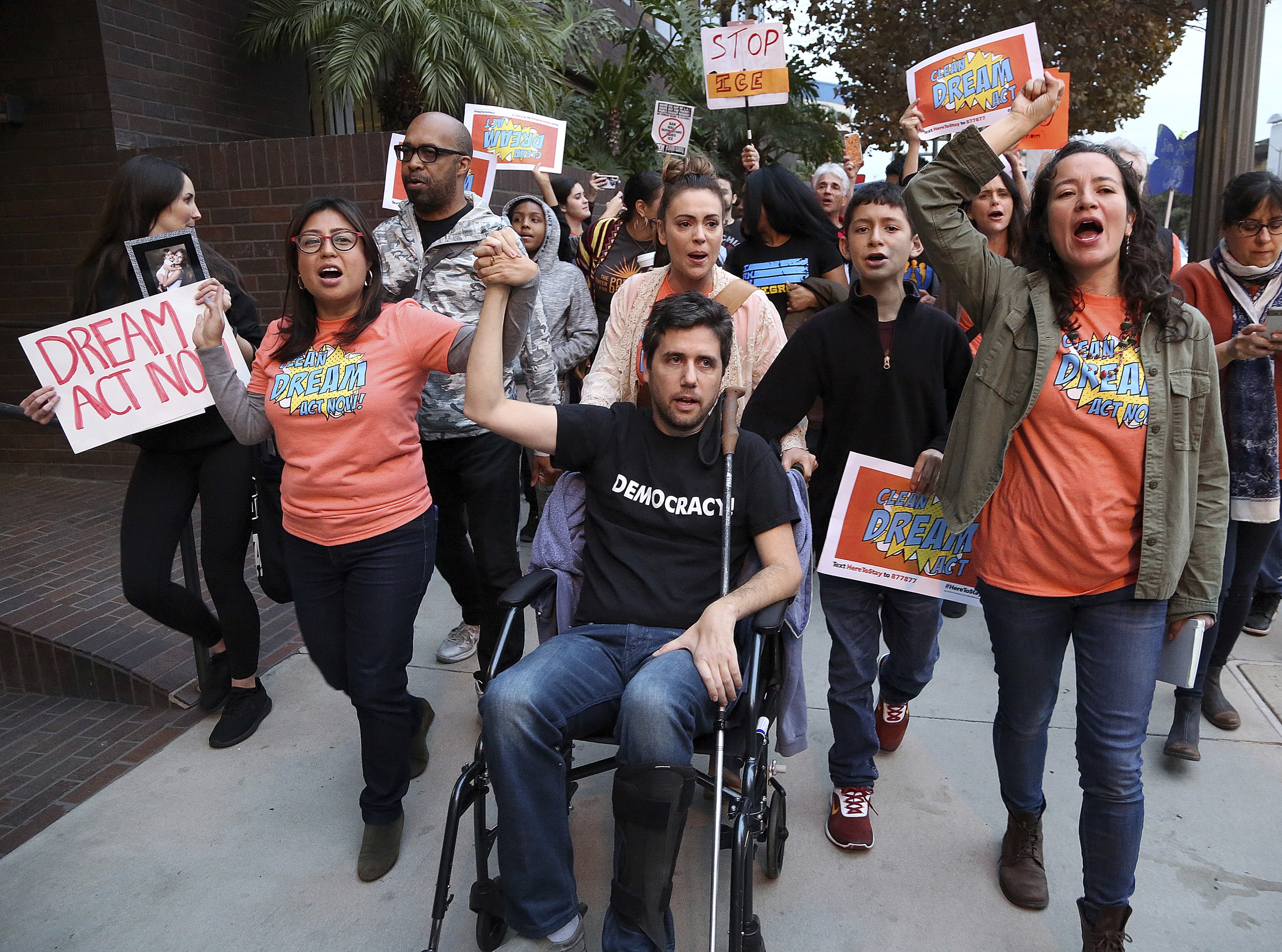 Ady Barkan, center, leads a delegation urging Democrats to protect the Deferred Action for Childhood Arrivals program in 2018. (Reed Saxon / AP)
Ady Barkan, center, leads a delegation urging Democrats to protect the Deferred Action for Childhood Arrivals program in 2018. (Reed Saxon / AP)
“You can be an American hero,” the passenger implores. Although he is only 33 years old, he walks with a cane and his speech is noticeably impaired. Sen. Jeff Flake, R-Ariz., can only stand in the aisle of the plane uncomfortably. Within days, he will cast his vote for a regressive Republican tax bill that repeals the individual mandate of the Affordable Care Act, affecting the coverage of millions. The passenger presses, “My life depends on it.”
His name is Ady Barkan.
In many ways, Barkan is just another U.S. citizen trying to survive in a country without universal health care. At 32, he was given three years to live after being diagnosed with amyotrophic lateral sclerosis (ALS), a terminal neurodegenerative disease also known as Lou Gehrig’s disease. Barkan turned 35 in December.
Advocacy is nothing new for the lawyer and native Californian, whose work for the Center for Popular Democracy includes the successful “Fed Up” campaign to reform the Federal Reserve. As an activist, he has long encouraged people to tell their stories, which he views as the catalyst for change.
Barkan is father to 3-year-old Carl and partner to Rachael Scarborough King, an associate English professor at the University of California, Santa Barbara, and the author of “Writing to the World: Letters and the Origins of Modern Print Genres.” He is also my cousin by marriage, which means that most of my memories of him involve gefilte fish and extended Bob Dylan singalongs.
Whatever our memory of Ady, it is essential that we link his story to our current political, social and economic crises. Once his ALS diagnosis sank in, he knew that he wanted to use his remaining time to fight for a more just health care system, and that his best chance to effect change was to put himself and his progressing illness in the spotlight.
Before his run-in with Sen. Flake, Ady had already been arrested in the U.S. Capitol for protesting the Tax Cuts and Jobs Act (the police who made the arrest reportedly whispered their support for his cause). After video of the encounter went viral, he formed the Be A Hero political action committee with Liz Jaff, traveling to 22 states in 40 days to talk to voters about health care and encourage them to lend their support to progressive candidates in the summer of 2018. “We won every single race we ran our ads in,” Jaff claims.
Ady has been profiled in The New York Times, Politico and The Nation, and both he and his family were featured in a video by Sen. Elizabeth Warren, D-Mass., opposing the 2017 tax bill. (The 2020 hopeful also mentioned him by name during the Democratic debate in July.) Another of his allies is Rep. Alexandria Ocasio-Cortez of New York, whom Ady supported before she became a progressive superstar, and who shares his views on such issues as health care and the dangers lobbyists pose to our democracy.
On April 30, Congress held its first-ever hearing on “Medicare for All,” and Ady provided stirring testimony with the help of a text-to-voice computer program. It was a historic moment that formally introduced him to the American public and positioned him as a leader in the fight for universal health care.
Recently, Ady launched “Uncovered: Health Care Conversations”—individual sit-downs with Democratic candidates that he hopes will serve as an antidote to “the composed speeches, the empty one-liners and stilted debates.” In his first two nine-minute interviews, Ady presses 2020 presidential candidates Cory Booker and Bernie Sanders to explain how the health care debate affects them personally; Booker’s father struggles with Parkinson’s disease, while Sanders’ mother died young—and to lay out their positions on Medicare for All explicitly.
Ady understands the power that his story holds, and he has now connected the personal to the political in a powerful new memoir, “Eyes to the Wind: A Memoir of Love and Death, Hope and Resistance,” which chronicles his quest since his ALS diagnosis and for which Ocasio-Cortez has written an introduction.
This summer, I asked Ady a series of questions—not over a beer, as we both would have likely preferred, but over email, which Ady now writes with his eyes.
Rebecca Levi: Do you have an origin story? Your progressive politics, activism and interest in grassroots organizing far pre-date your ALS diagnosis. Can you trace them back to a particular moment, or series of moments, in your life?
Ady Barkan: Like for most people, my political worldview developed over time. There were various formative experiences, in high school and college, law school and my different jobs, conversations with friends and comrades, and struggles for justice that were profound moments of learning and growth. I write about many of these in my memoir, “Eyes to the Wind.”
RL: You have an extraordinary ability to look at a complex political landscape and identify the policies and people that require our attention. How do you—and how can we—keep an eye on the truth and avoid the red herrings?
AB: It’s not easy. There’s so much to be angry about, and there’s so much to despair about every day. The thing I’ve tried to do over the past couple of years is keep my eye focused on what actually touches people’s lives. That’s why I focus so much of my effort on health care policy, because that’s a huge driver of stress, financial and otherwise, on the lives of millions of Americans every day. It’s why I care a lot about criminal justice reform and climate change and the unconscionable concentration camps along our southern border—the broad, systemic failures that are taking a toll on people’s lives right now. That’s what I try to keep my focus on, amidst all the noise.
RL: As we look down the barrel of the 2020 election and the primaries that will precede it, do you have any suggestions as to how we can, or should, evaluate our presidential candidates?
AB: It’s a good question—I’m doing it myself. For me, it boils down to two key things. First, does the candidate understand what’s happening in this country; namely, that we have a growing divide between rich and poor that’s threatening the very foundation of democracy and diluting the basic notion of accountability in government? It’s important to get into details on specific issues, but I need the Democratic nominee to understand the Republican assault on voting rights and the endurance of fossil fuel subsidies as fundamentally connected points in the arc of a larger story. Second, does a candidate anger or threaten the wealthy and powerful who are driving our society into ruin for the sake of their own profits? The candidate I vote for needs to make the fossil fuel and health insurance industries angry, and needs to be willing to name them as drivers of our nation’s crisis. Without that big-picture vision and the courage to fight back, a candidate just isn’t going to get anywhere against the political forces that brought us Donald Trump.
RL: How do you measure the impact of your work? Has this changed over the past few years (post-Trump election, post-diagnosis)?
AB: I think my story has struck a chord with people, but I’ve tried not to change my general orientation towards my work. At the end of the day, I want to be remembered as someone who tried to live up to the privilege conferred on me by the circumstance of my birth, as someone who fought to make the world a little more fair and just for all. As for how I know if I’m making a difference—I think that’s the same question all of us who work in activism struggle with. It’s tough to measure my individual impact, but if I’m able to get one new person to join our cause, to march, to vote, then that’s really all each of us can ask for. That’s how we win—as a movement.
RL: Your professional and personal identity have become inextricable, partially because you have made a conscious decision to bring your story into the spotlight as a part of your work. How inevitable did that choice feel to you? And how has your understanding of activism evolved since?
AB: It was inevitable at a certain point. It became impossible to talk about why health care policy matters to me without bringing up this giant, earth-shattering diagnosis that I was walking around with every day. It was a weird, scary, vulnerable thing for me—but it underlined what I’ve long known to be true: that there is tremendous power in each of our stories. Ultimately, personal stories are the most effective way to get through to someone who’s on the fence about any of the gargantuan issues in our society, more than facts and figures, more than detailed charts. So I hope the reception to my story gives other folks around the country with a private struggle that’s indicative of a public failing a gentle nudge to step forward and help change things for the better.
RL: For those who are seeking to define the scope of their own social and political action, do you recommend focusing on specific policies (e.g., the 2017 tax bill), or building support behind specific candidates and parties (e.g., the [Working Families Party]) who will address a range of issues?
AB: Yes. Look, the movement is a big place, and there’s a lot to do. We need people to get involved on specific issues, if that’s what you’re passionate about, and to build public support behind the progressive slate writ large. All of it needs to happen to win—the important part is just to get involved, and stay that way. I’ve long said the odds are long, and sometimes things look bleak, but that the only way out of this crisis is with more democracy. We need more and more people to be a part of this, and the way you get involved is completely up to you.
Your support matters…Independent journalism is under threat and overshadowed by heavily funded mainstream media.
You can help level the playing field. Become a member.
Your tax-deductible contribution keeps us digging beneath the headlines to give you thought-provoking, investigative reporting and analysis that unearths what's really happening- without compromise.
Give today to support our courageous, independent journalists.

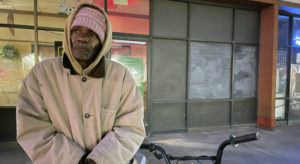
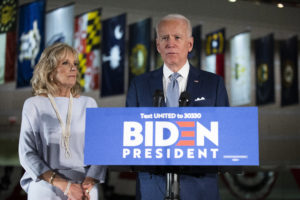
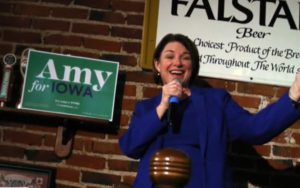
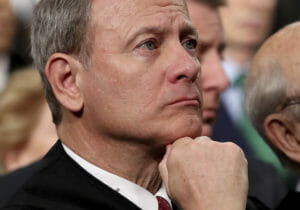
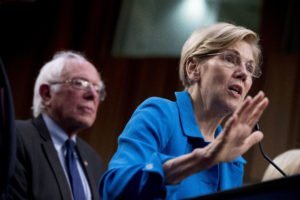
I started out taking only Azilect, then Mirapex,and then dopamine for my Parkinson disease, as the disease progressed they didn’t help much. A year ago I started on PD TREATMENT PROTOCOL from Aknni Herbs Centre (www.aknniherbscentre.com). One month into the treatment, I made a significant recovery, my symptoms were gone including tremors . It's been months since I completed the treatment, I am symptom free and I live a very productive life all thanks to Aknni herbs centre !!!
I started out taking only Azilect, then Mirapex,and then dopamine for my Parkinson disease, as the disease progressed they didn’t help much. A year ago I started on PD TREATMENT PROTOCOL from Aknni Herbs Centre (www.aknniherbscentre.com). One month into the treatment, I made a significant recovery, my symptoms were gone including tremors . It's been months since I completed the treatment, I am symptom free and I live a very productive life all thanks to Aknni herbs centre !!!
My husband first symptoms of ALS occurred during covid, but was diagnosed in 2021 when he was 61 years. He was on Riluzole- not crazy about it! he was also on Gabapentin and Radicava not crazy about any of it either, The Rilutek (riluzole) did very little to help him. The medical team did even less. His decline was rapid and devastating. His arms weakened first, then his hands and legs. I was a master...
My husband first symptoms of ALS occurred during covid, but was diagnosed in 2021 when he was 61 years. He was on Riluzole- not crazy about it! he was also on Gabapentin and Radicava not crazy about any of it either, The Rilutek (riluzole) did very little to help him. The medical team did even less. His decline was rapid and devastating. His arms weakened first, then his hands and legs. I was a master Gardener and love herbs! This ALS took my life from me, I was no longer able to work in my garden anymore because I was a full time caregiver for my husband. We stopped most of his ALS medications due to severe side effects and I started him on herbal treatments from Health Herbs Clinic (healthherbsclinic. c om), the treatment has made a very huge difference for him. His symptoms including body weakness and slurred speech disappeared after few months on the treatment. He is getting active again since starting this treatment, he is able to walk and able to ride his treadmill again.
we visited their website www. healthherbsclinic. com and ordered their ALS/MND Formula, i am happy to report the treatment effectively treated and reversed his Amyotrophic Lateral Sclerosis (ALS), most of the symptoms stopped, he is able to walk and able to ride his treadmill again, he is pretty active now.